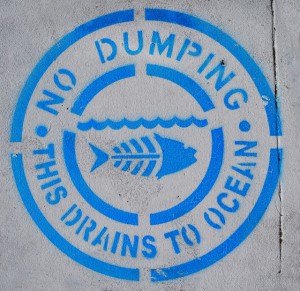Migration toward vigorous learning seems easiest to see from a company view, one that most of us are used to:
1. Eliminate operational waste of no benefit to customers or any other stakeholder – the prime objective of lean thinking.
2. Then minimize environmental waste in your own operations – green the lean, so to speak.
3. Improve the well being of customers, suppliers, employees, and your surrounding community – your supply chain and other stakeholders.
4. Secure genuine participation from all employees, suppliers, customers, and other stakeholders. They have to want to do this, so you need a mission that all can unite behind. Learn how to dialog with all stakeholders on tough issues.
If you have done all this, you have done a bang up job executing your core business model with excellence, but without changing the intent of that model.
If you have done all this, you have done a bang up job executing your core business model with excellence, but without changing the intent of that model.
As we see it today you’re successful while being fair with key stakeholders. But you are not deep into Vigorous Learning using Compression Thinking. So what is the next step? Question whether your business model – your core effect on others – helps stakeholders, especially customers do better while using much less, or whether it entices them to consume ever more stuff.
Of course, a first reaction is that this will increase costs and reduce sales. How could we ever afford that?
Good! You have asked your first deep question thinking outside the range of conventional business, going toward Vigorous Learning. If you keep thinking conventionally, sales will drop, so start directing your attention outside your company, taking a different view of processes on which you, your neighbors, and all communities in the industrial world depend for survival and well being.
The real action is in communities. To be successful, even global policies have to be executed by real people place-by-place. Local is where complex processes become specific. Start figuring out how to help some stakeholders improve processes in their communities critical to living well while using much less. Think big, local, and specific at the same time – systems thinking – the kind of systems learning that is stunted if one narrowly concentrates on marketing a “solution.” Instead, think about participating in continually helping to improve a community process.
Although all community systems overlap, pick one like water or transport to start, but don’t rely on systems experts to resolve it (experts usually present options and officials pick one). Before committing to major changes, take the time to assess how the system now works, including the human elements of it, as noted in the update titled “Doublethink Traps.”
Community organizations are age old, but new environmental versions of them range from Portland Eco-Districts to Transition USA communities. They do good work. The contribution of the Compression Institute, when possible, is to develop community organizations into issue learning groups, using some of the “tools” from lean and quality initiatives; plus more “tools” for engaging all people in dialog. Create a boost for community organizations.
Extensive description of a community-based learning organization must wait on future columns and a Guide to Vigorous Learning, forthcoming. If a community organization can just begin to use Principles of Compression Thinking, doing better using much less, it begins to clarify mission and direction. It may remain a “forward muddle,” but consistency of purpose helps.
However, from a company view, seek revenue opportunities in service helping communities improve processes. See possibilities not seen before. Enable their solutions, rather than be part of their problems. The human reasons for excess use of water or having mountains of garbage is first, habit; then belief that if excess is normal, it is somehow necessary. Technology is very helpful – and saleable – but habits and beliefs are the tough nuts to crack. So become part of a community learning network, or even try to instigate forming one.
Since companies do have to make money, think of profit as a design specification for products and processes, not as the objective. Just that change in perspective alone is enormous.

